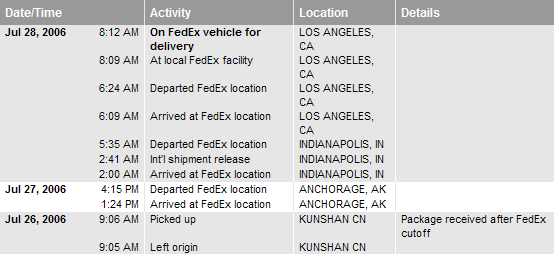I’m stopped at a red light on Olympic Boulevard, one of several major arterials that criss-cross this city. It was renamed for the 1932 Los Angeles Olympic Games and stretches 25 miles east-west from Montebello to Santa Monica. For me, Olympic will always be associated with LA’s Koreatown, and thus, have some kind of East Asian resonance about it, which makes almost no sense at all. Still, if I had to pick a focal point for Koreatown, it would be somewhere in the vicinity of Olympic Boulevard and Western Avenue. Korean restaurants, banks, supermarkets, shopping plazas, auto repair shops, hair salons, churches, and auto dealers spread to the north and east from this intersection, which has been the semi-permanent location of a large mural ad for Korean Air. Just north of this intersection sits the Wiltern, one of LA’s great Art Deco treasures, recently purchased by LG, a South Korean conglomerate that is likely to be best known for its electronics, particularly mobile phones.
Olympic Boulevard is my preferred route. The particular stretch of Olympic Boulevard that I travel skews toward residential and office developments, making it a great way to avoid the stop-and-go, turn into the parking lot, stop off for a Starbucks or McSandwich traffic that predominates on most of the other corridors. It also violates most of my urban planning sensibilities, but most of us learn to live as hypocrites to avoid killing ourselves. I have, however, stopped buying uber-Republican Michael Dell’s computer products. You have to judge hypocrisy by degrees.
There’s a Civic in the center painted quad-yellow median who would like to make a left-turn into a driveway for a small office complex. This is a perfectly legal maneuver, though, in this particular circumstance, a questionable one, since the volume of traffic makes it unlikely that an opportunity for a safe left turn will present itself in a reasonable amount of time. Driving, or route-planning, is often far more complex than simply finding the solution of Point A to Point B. At the very least, different routes need to be evaluated based on the legal top-speed allowed on those routes. Going from 4th (St.) and Olympic in Santa Monica to 4th (Ave.) and Olympic in Montebello would be faster if taking Interstate 10. Interstates and highways are referred to as freeways here in Southern California, though the term doesn’t really include those surface streets that also double as highways. The freeways are often given names based on their destination, loosely relative to downtown LA. Thus, the 101 is the Hollywood Freeway from downtown to Hollywood, but becomes the Ventura Freeway from Universal City to Ventura. Stranger still, the east-bound Ventura Freeway doesn’t end in Universal City. It switches from the 101 to the 134 to head into downtown Burbank, Glendale, and Pasadena. The 110 is the Pasadena Freeway north of downtown, and the Harbor Freeway south of downtown. I-10 is the Santa Monica Freeway west of downtown and the San Bernardino Freeway east of downtown, though I like to think of that stretch as the Joe Speaker freeway, since he lives out that way. The Century Freeway is LA’s newest freeway and breaks tradition by taking its name from Century Boulevard, which it parallels from Norwalk to LAX. It never ends up in Century City, which is actually just a part of Los Angeles that used to be the massive 20th Century Fox studio lot.
So now I am faced with the choice that faces many drivers. I have the opportunity to “be a nice guy” and let the Civic attempt his left turn in front of my stopped car, or “be the asshole” and pull forward by 6 feet and block him from getting in my way. It may be that I’m becoming old before my time, but I’d be willing to risk good money on the notion that driving in LA has become more aggressive over the past ten years. It’s probably a combination of factors, including a healthy economy, the proliferation of cars with more powerful engines and the illusion of safety, and the natural tendency to learn behaviors from others. The end result is that the words “courtesy” and “yield” have been dropped from the LA driving lexicon, replaced by vulgarities unsuited for some of our readers at home. It seems to me that being courteous and allowing grace for minor infractions of the law, written or otherwise, would make for a better driving experience for all concerned. At the very least, the individual driver who leaves the ego at home and doesn’t allow the chaos around him to affect his mood is less likely to get himself into trouble for revenge or cock-blockery.
I let the Civic through. At the same time, an early 90’s American sedan cruised along in the right-turn lane. For him, a green right arrow signals his right of way. Few drivers expect a car to appear out of nowhere, especially from the midst of two solid lanes of cars stopped at a red light. Yet, the unexpected happens every day to someone on these streets. Maybe several someones.
As I drove away I wondered if I should have prevented the accident by thwarting the Civic driver’s desire to do something stupid. But doing so would have made me look like an asshole, and at the end of the day, if the price of a complete stranger’s untarnished opinion of me only amounts to thousands of dollars in car repairs and a little hospitalization, it is well worth it.
